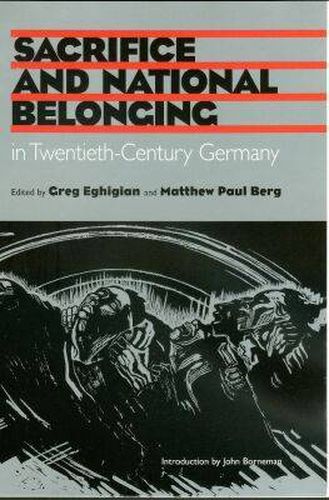Readings Newsletter
Become a Readings Member to make your shopping experience even easier.
Sign in or sign up for free!
You’re not far away from qualifying for FREE standard shipping within Australia
You’ve qualified for FREE standard shipping within Australia
The cart is loading…






Over the course of the 20th century, Germans from virtually all walks of life were touched by two problems: forging a sense of national community and coming to terms with widespread suffering. Arguably, no country in the modern Western world has been so closely associated with both inflicting and overcoming catastrophic misery in the name of national belonging. Within this context, the concept and ideal of
sacrifice
have played a pivotal role in recent German political culture. As the seven studies in this volume show, once the value of heroic national sacrifice was invoked during World War I to mobilize German soldiers and civilians, it proved to be a remarkably effective way to respond to a wide variety of social dislocations. How did the ideals of sacrifice play a role in constructing German nationalism? How did the Nazis use this idea to justify mass killing? What consequences did this have for postwar Germany? This volume opens up discussions about the history of 20th-century German political life.
$9.00 standard shipping within Australia
FREE standard shipping within Australia for orders over $100.00
Express & International shipping calculated at checkout
Over the course of the 20th century, Germans from virtually all walks of life were touched by two problems: forging a sense of national community and coming to terms with widespread suffering. Arguably, no country in the modern Western world has been so closely associated with both inflicting and overcoming catastrophic misery in the name of national belonging. Within this context, the concept and ideal of
sacrifice
have played a pivotal role in recent German political culture. As the seven studies in this volume show, once the value of heroic national sacrifice was invoked during World War I to mobilize German soldiers and civilians, it proved to be a remarkably effective way to respond to a wide variety of social dislocations. How did the ideals of sacrifice play a role in constructing German nationalism? How did the Nazis use this idea to justify mass killing? What consequences did this have for postwar Germany? This volume opens up discussions about the history of 20th-century German political life.